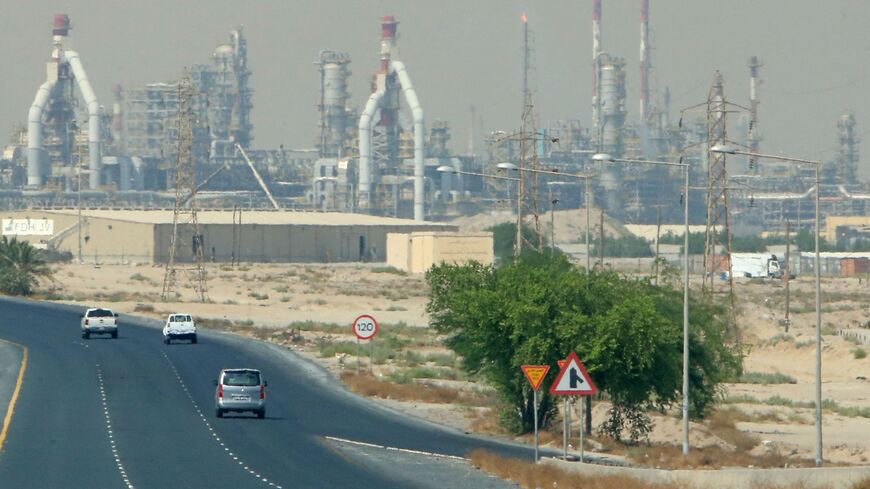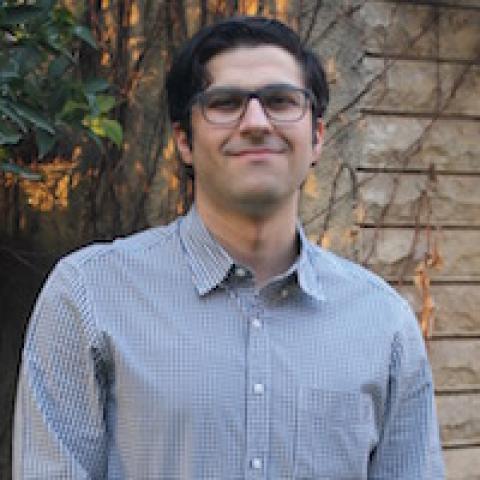A dispute over the Durra gas field in the Gulf is affecting improved relations between Saudi Arabia and Iran, and it also complicates the gas development plans of both countries as well as Kuwait.
Durra — known as Arash in Iran — is located in the northwest part of the Gulf off the coast of Kuwait. Saudi Arabia and Kuwait consider the field to be located in their neutral zone, but Iran claims a northern part of the field. The dispute dates back to the 1960s and has delayed the field’s development.
The issue has escalated recently. Saudi Arabia and Kuwait signed an agreement last year to finally develop Durra. Iran called the deal “illegal” in response. In late June, the National Iranian Oil Company said that it is preparing to start drilling in Durra. On Monday, Kuwait said that it “rejects” these plans. On Tuesday, Saudi Arabia reiterated its rights to the field along with Kuwait’s and called on Iran to negotiate, according to state media.
The dispute comes on the backdrop of Saudi Arabia and Iran agreeing to resume diplomatic relations in March in a deal brokered by China. The two rivals cut ties in 2016.
Kristian Coates Ulrichsen, a fellow at the Baker Institute at Rice University, said that the dispute is a “test” for the improved Saudi-Iran relationship.
“It was always going to be the case that specific flashpoints such as this would put to the test the recent moves to reconcile and restore diplomatic relationships,” Ulrichsen told Al-Monitor. “How this is resolved will be an early indicator of the depth and durability of the rapprochement between Iran and its Gulf neighbors.”
Saudi Arabia and Iran have made progress toward improving bilateral relations. Iran reopened its embassy in Riyadh last month. In May, Saudi Arabia agreed to restore relations with Syria — a key Iranian ally in the region. The kingdom has also held talks with the Iran-backed Houthi rebels in Yemen this year, though the war has yet to formally end.
The Durra issue demonstrates that significant issues remain between Iran and Saudi Arabia, according to Ulrichsen.
“The dispute is a reminder that specific points of difference remain live issues,” he said. “It remains to be seen how and to what degree the fact that there are now direct relations between Teheran and Riyadh may lead to tangible progress being made on these individual cases, which have defied resolution in the past.”
Kristin Smith Diwan, senior resident scholar at the Arab Gulf States Institute in Washington, said that the Dorra dispute could enable the Gulf to show how improvement in regional relations can be beneficial.
“While tricky, it may prove an opportunity to demonstrate how improved communications among the Gulf neighbors can yield mutual benefits,” Diwan told Al-Monitor.
Though known for their oil, natural gas is also important to the three countries. Saudi Arabia and Iran both have large natural gas reserves. Saudi Aramco announced a major gas discovery last November, and the kingdom is seeking to develop the industry.
The Islamic Republic is struggling to take advantage of its gas reserves. Iranian homes experienced heat disruptions this past winter, forcing authorities to apologize, Al-Monitor’s correspondent in Tehran reported in January.
Kuwait, on the other hand, has relatively fewer natural gas reserves and relies on imports. In 2021, Kuwait opened its first permanent facility for importing liquified natural gas. The move was part of an effort to rely less on crude oil, Bloomberg reported at the time.
“Officials in Saudi Arabia and Kuwait are seeking to develop gas reserves to take the strain off oil for power generation while Iran is having to play catch-up in developing and monetizing its own huge gas reservoirs as a result of years of sanctions and isolation,” said Ulrichsen.
Bloomberg reported in 2021 that gas demand was set to rise in Kuwait. Diwan said that gas production is especially important for Kuwait due to this reality.
“Production is most critical for Kuwait given its pressing domestic gas needs,” she said.
Diwan added that most of the gas in the Durra field would be used domestically in the three countries, thus having a “minimal” impact on global gas markets.








